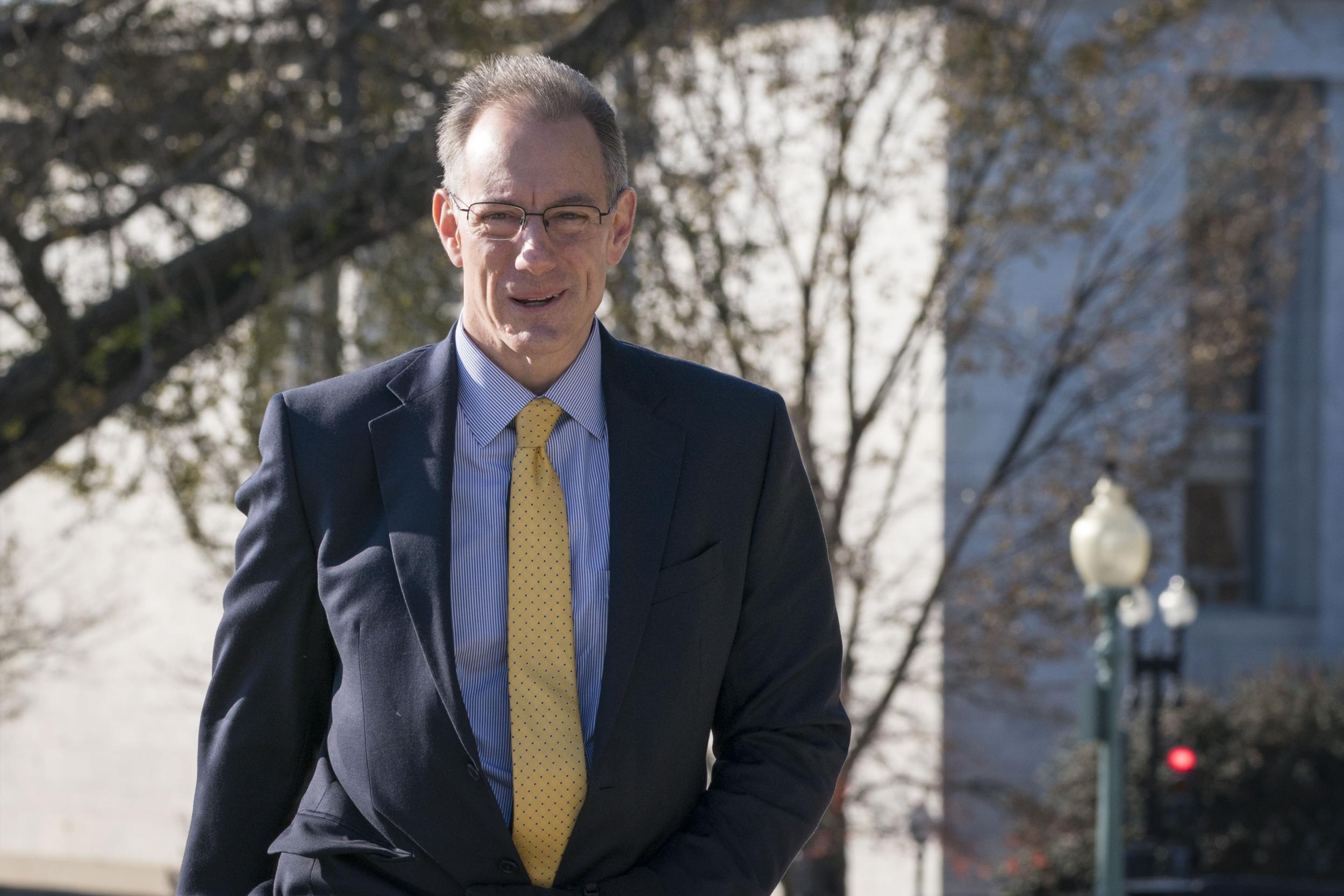White House officials resigned over Trump threat to freeze Ukraine aid, official says
House Democrats says the Office of Management and Budget's 'unlawful' behaviour could lead to reforms

Your support helps us to tell the story
From reproductive rights to climate change to Big Tech, The Independent is on the ground when the story is developing. Whether it's investigating the financials of Elon Musk's pro-Trump PAC or producing our latest documentary, 'The A Word', which shines a light on the American women fighting for reproductive rights, we know how important it is to parse out the facts from the messaging.
At such a critical moment in US history, we need reporters on the ground. Your donation allows us to keep sending journalists to speak to both sides of the story.
The Independent is trusted by Americans across the entire political spectrum. And unlike many other quality news outlets, we choose not to lock Americans out of our reporting and analysis with paywalls. We believe quality journalism should be available to everyone, paid for by those who can afford it.
Your support makes all the difference.Two officials at the White House budget office have resigned over disagreements on a hold on $400m of congressionally approved military aid to Ukraine, according to a transcript of testimony from a career official during the impeachment inquiry into Donald Trump.
Mark Sandy — associate director for national security at the White House Office of Management and Budget — testified that the unnamed employees had resigned "in part" due to the decision to withhold assistance to Ukraine.
Mr Sandy said at least one of the employees who resigned had a "dissenting opinion" about the decision to freeze the aid, citing legal concerns, and another "expressed some frustrations about not understanding the reason for the hold" on the aid. Mr Sandy said the Trump administration did not tell the office that aid was being withheld because of inadequate assistance from other countries, which the administration has said was a key reason for the hold, until months after it was in place.
The aid wasn't released until September, when Mr Sandy said the White House had emailed him for "data" about other countries' contributions. But Mr Sandy said the administration's reasoning had remained "an open question" through July and August.
On Wednesday, the House Budget Committee reported that the OMB engaged in a "pattern of abuse" by withholding aid to Ukraine.
In its report, the committee assembled a timeline that details the Trump administration's plan to withhold aid days before a 25 July phone call between Mr Trump and Ukrainian President Volodymyr Zelensky at the heart of the impeachment probe.
The same day of the call, an official within OMB signed off on formally withholding $250 million in Pentagon funds for Ukraine. Those funds were not released until 12 September.
The committee said the OMB's "unlawful" behaviour — including a new political appointee's retention of a "significant" amount of Ukraine aid until the end of the fiscal year — could spur legislation to prevent the OMB from limiting or delaying congressionally approved aid in the future.
Mr Sandy said he learned about a hold on Ukraine aid on 19 July, when he questioned the legality of the decision and possible violations of the Impoundment Control Act, which prevents the executive branch from substituting Congressional funding decisions for its own.
He said he was responsible for approving the official hold on the aid on 25 July, the day of the call — but political appointee Mike Duffey was assigned to take over.
According to Mr Sandy, Mr Duffey told him in June that Mr Trump had "questions" about the assistance, based on media reports.
Mr Duffey has defied a subpoena to appear before Congress to discuss his role in the freeze.
Mr Sandy's closed-door testimony on 16 November was released on Wednesday along with the last batch of 17 transcripts released by Congress as part of the impeachment inquiry into the president.
The House Intelligence Committee will now assemble a summary of the findings from congressional hearings, and the House Judiciary Committee has set a date to discuss the "constitutional framework through which the House may analyse the evidence gathered in the present inquiry."
Judiciary Chair Jerry Nadler has invited Mr Trump to the hearings, set to begin on 4 December, during which legal experts will discuss whether the president's alleged abuses of power in his handling of Ukraine and its military aid constitute "high crimes and misdemeanours" as established in the US constitution.
In his 26 November letter to the White House inviting the president and his attorneys to the hearing, committee chair Mr Nadler promises a "fair and informative process".
In a statement, Mr Nadler said: "At base, the president has a choice to make: He can take this opportunity to be represented in the impeachment hearings, or he can stop complaining about the process."
That night, Mr Trump told a crowd in Florida that the impeachment inquiry is "bulls***" and a "Russian hoax" pushed by "deranged" Democrats.
Join our commenting forum
Join thought-provoking conversations, follow other Independent readers and see their replies
Comments